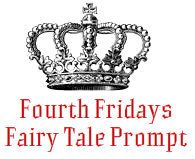ONCE upon a time, there was a man and his wife who were very wealthy. They had one son, whom they loved. Sadly, the boy's parents fell sick and died, and so he was sent to be raised by his uncle. He was not a wicked uncle, and he made sure that the boy was well taken care of and educated him.
As he walked down the road one day to see his teacher, the boy came upon an old woman with a withered hand. He felt pity for her, so he touched her and prayed that she would be restored. As he prayed, the old woman's hand healed, and she became whole.
The young boy grew into a good and kind man. He was so good and kind that he was made into a bishop. In fact, he was a saint, and what he loved most of all was to give, especially to little children.
The saint went on to do many wonderful things: he restored people to health, saved them from famine, and even brought them back to life. You see, he had been given great authority, and even the emperor answered to him.
When he grew old, at the hour of his death, the angles flew him to live in a land eternally covered in ice, and the fair folk who lived there took him in as one of their own.
Once a year, the old saint prepared a sleigh and filled it with good things: sugared candies, clockwork toys, nuts, exotic fruits, and many elfish trinkets. He harnessed the sleigh to enchanted reindeer that flew the sleigh all over the world in one night.
And the old saint slipped down the chimneys and left gifts for the good children. But for the bad children, he left coal.
 |
| Wieslaw Piesak, saint nicholas brings the snow |
By now you know that the young boy who grew into a saint was Saint Nick, also known as Santa Claus or Father Christmas. But I wrote the story to show that
his is a fairy tale. Or a folk tale, if you prefer. Many elements of a fairy/folk tale are present: an ordinary person called to do or be something extraordinary; a journey, whether symbolic or literal; dealings with faeries (elves); reward and justice; the sense of mystery or more questions left than answers.
Here is a figure as universal but specific as Baba Yaga.
Perhaps it would be more accurate to say "as King Arthur." The historical origin of Father Christmas makes a good argument for him as legend. But at some point, the legend of Saint Nicholas leaves off and gives way to whimsical fancy.
In "A Visit from Saint Nicholas," better know as "The Night before Christmas," by Clement Clarke Moore, we find even more evidence of fairy tale influence: the stockings hung by the chimney (no mention of a German Christmas tree yet) are reminiscent of putting particular but unusual household objects in certain places, either to attract or to repel the faeries, such as horseshoes, dolls, and gifts of food.
 |
| Raul Guerra, Father Christmas |
That's another one. Father Christmas gets left cookies and milk, and sometimes hay for his horses or reindeer, like an offering to an ancient household god in exchange for blessings.
It escapes notice that the poem goes on to describe "a miniature sleigh and eight tiny reindeer." I used to think that part was odd. Were people of the time accustomed to very large, many-person sleighs? Were the reindeer "tiny" in the sense that they were more the size of small horses or ponies? Reading further, St. Nick is called "a right jolly old elf."
Combining these descriptions with the knowledge that Santa slides easily down chimneys, we have a pretty good argument for making Saint Nick fairy-sized. He is an actual adoptee of the elves!
Saint Nick would not be the only human being, living or dead, to be adopted by the good folk. Tam Lin was a mortal knight who was rescued and kept by the fairy queen, and the banshee is more like a ghost than a different species, despite her name meaning "fairy woman." Will-o-the-wisps were often described as ghosts or ghost-lights. And on liminal nights like Halloween (All Hallows' Eve) and Christmas eve, it was long believed that living people could interact with the dead.
 |
| Anne Stokes, Spirit of Yule |
The tradition of converting old pagan figures and their trademarks into Christian saints is a well-known cultural phenomenon, and
it's believed that Santa Claus absorbed aspects of Odin from Germanic paganism: his long white beard and his midwinter midnight ride, for instance. The same process from pagan myth to fairy tale figures pervades many creeds and cultures.
For more on the links and similarities between Father Christmas and fairy tales, read up on
Tales of Faerie.





















